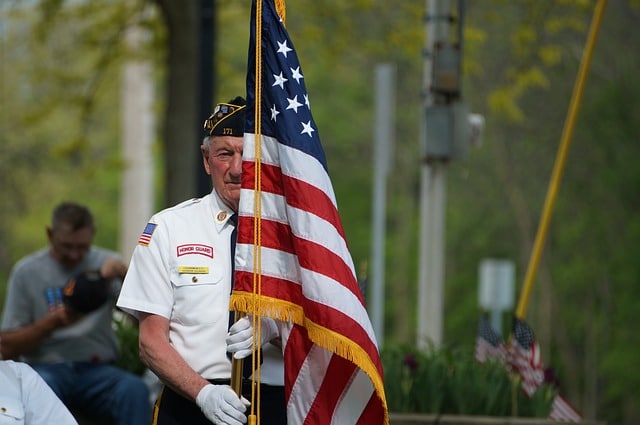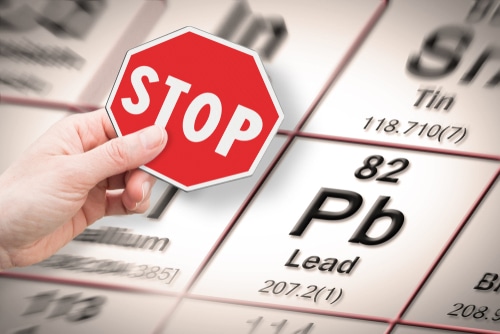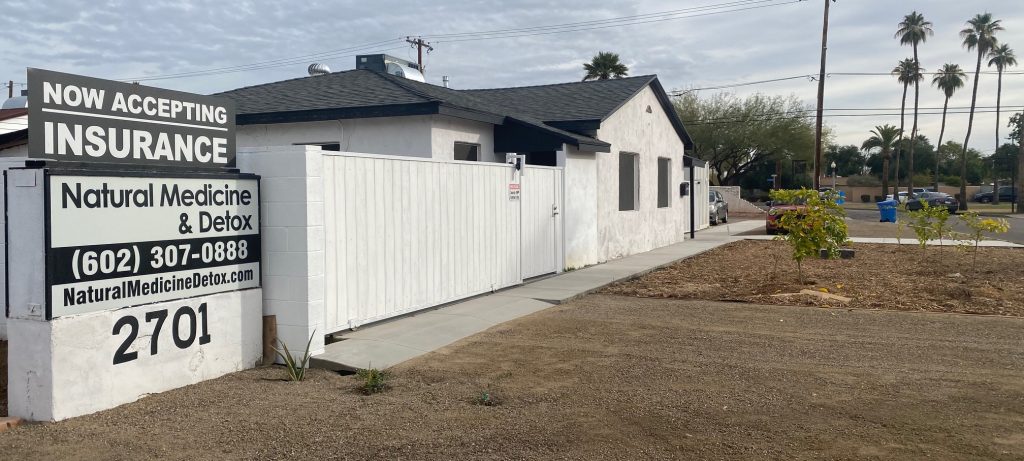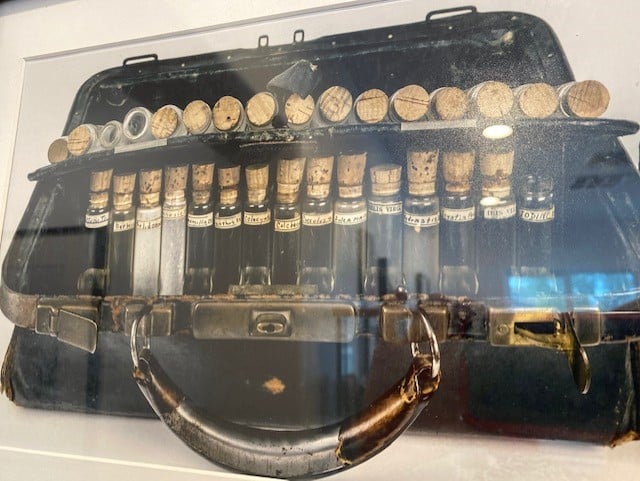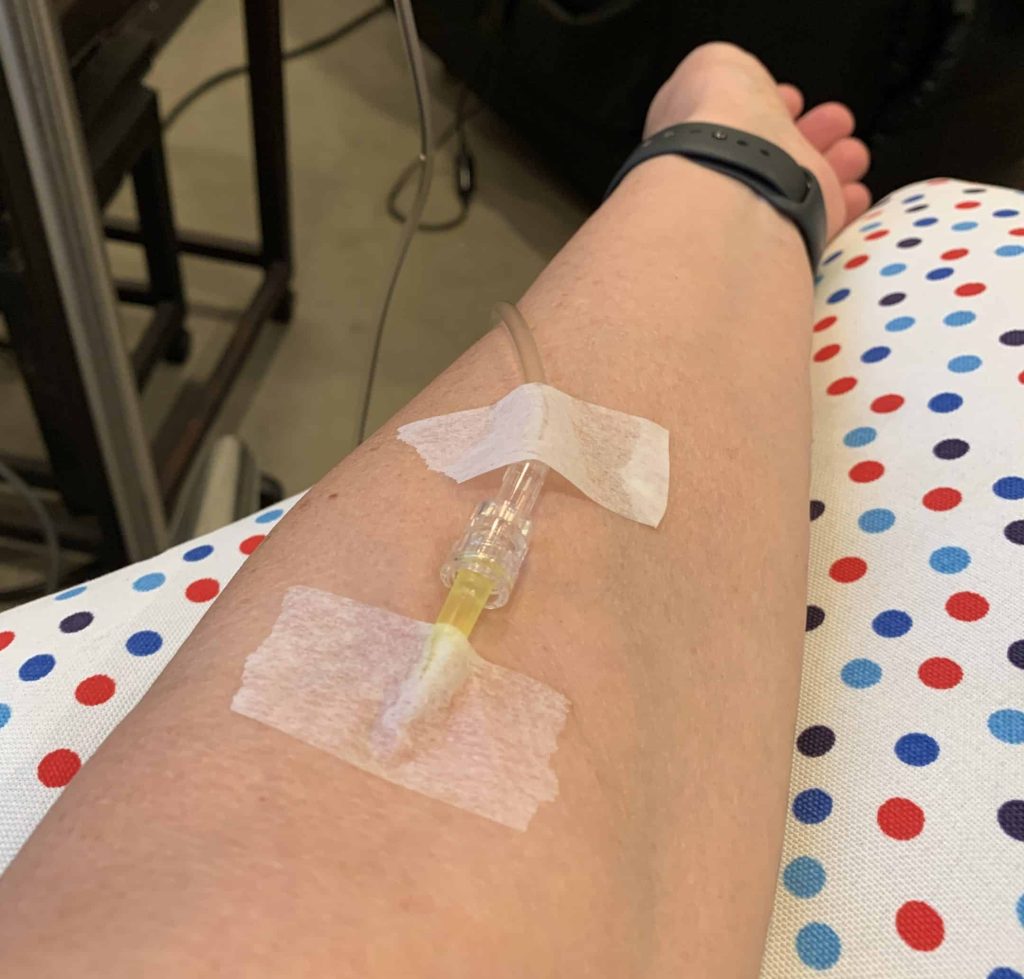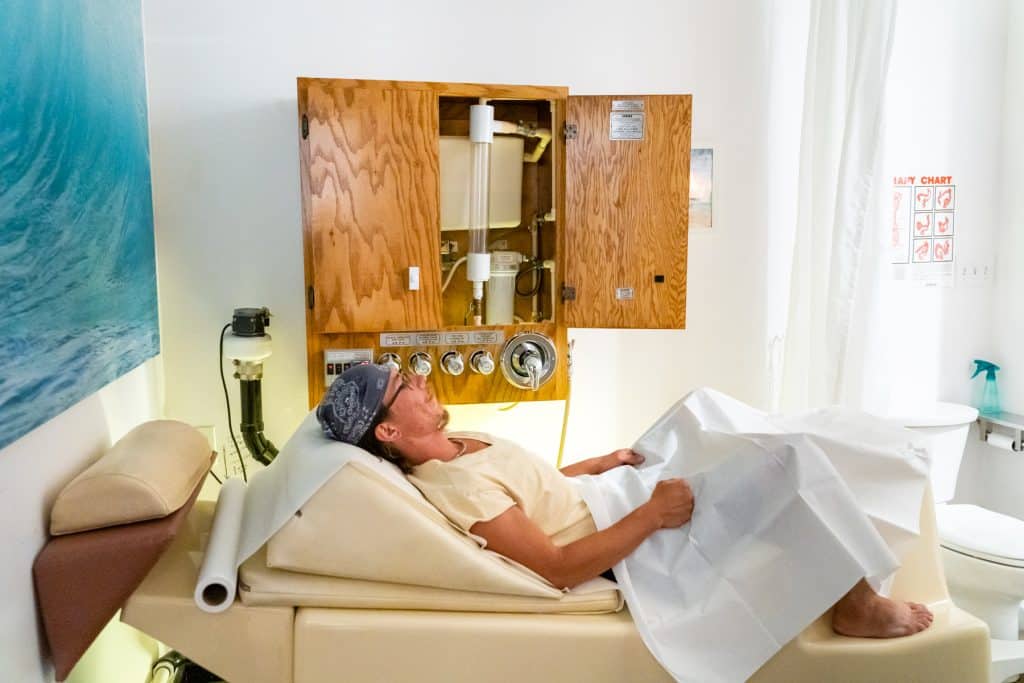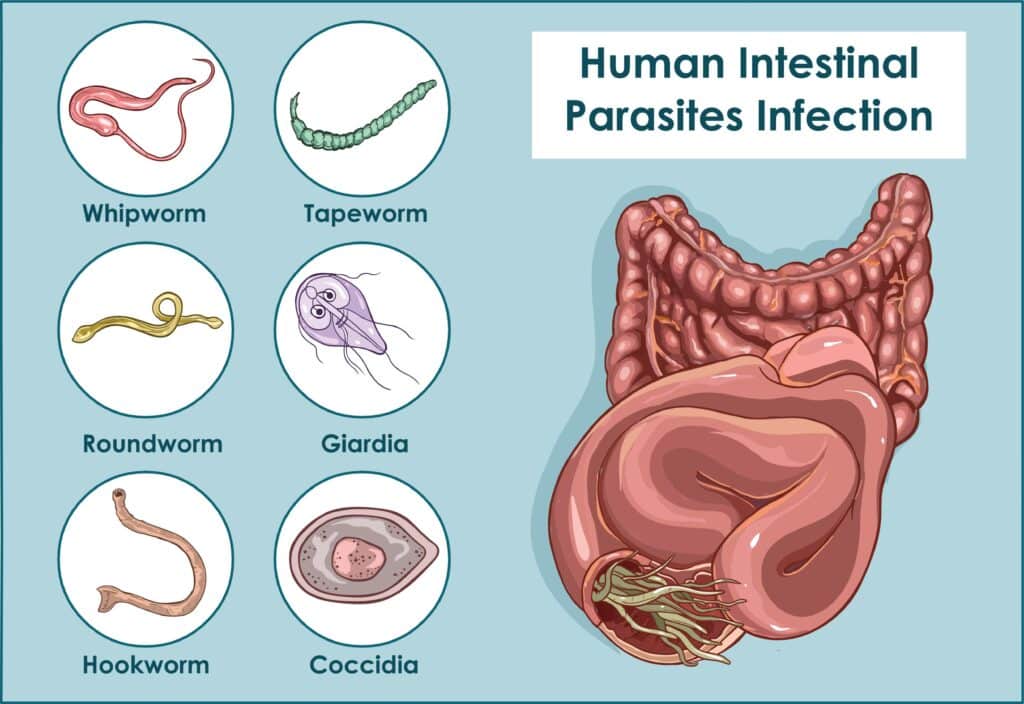Undeniably, many veterans suffer ongoing health concerns, like PTSD, directly or indirectly related to their sacrificial service to the United States of America. Unfortunately, most veterans are never welcomed home from tours of duty nor thanked for their contributions to this country’s freedom. The debt Americans owe to these forgotten heroes cannot be repaid. However, we can honor them and provide the care and support they deserve.
As a certified classical homeopath (CCH) at Natural Medicine and Detox Clinic in Phoenix, Arizona, I often have the privilege of serving those who have served. Individuals visit our clinic for acupuncture to help with their pain. During the clinical intake, they share other symptoms that can benefit from homeopathic care, and I meet with them. The following stories demonstrate the power of homeopathy to restore health and well-being, even when all seems lost.
Actual Patient Stories of PTSD and other Illnesses
Meet John
John, 57, had received acupuncture treatment for pain and post-traumatic stress disorder (PTSD) for several years. (To learn more about PTSD, see Homeopathic Healing for PTSD 1. He also took medication for depression, diabetes, and insomnia, prescribed by a Veterans Administration (VA) physician. My acupuncture colleague referred John to me for help with his lack of motivation and loss of ambition.
No purpose
John, who “saw action” in Panama, said he spent every day in bed—his wife had to deliver food on a tray. He could not tolerate noise, especially fireworks or gunshots, and he was always “armed” with a nearby weapon. John was depressed about the “bad times” during his tour of duty and described having no purpose in life, aimlessly spending his days thinking about wartime events. He still grieved a lot for civilians who died because of one of his troop’s missions.
No energy
Due to inactivity, John gained weight. “In the past, I felt better with exercise, but I have no energy for the gym anymore.” He had headaches with a pressured feeling behind his eyes and forehead, and drinking coffee sometimes relieved the pain. He was always hungry and craved Mexican food, especially salty tortilla chips. He liked coffee and drank a pot or more, plus several diet sodas daily to “perk himself up,” but he still felt lazy and unmotivated.
No peace, even in sleep
John had difficulty falling asleep because he could not stop thinking about “bad” past events. During sleep, he experienced chest tightness and restricted breathing, which caused him to wake frequently in a panic. John habitually dreamed of fighting and, about one or two times per month, had a recurring dream about war trauma. His wife said he thrashed around and sometimes accidentally hit her. John said his “happy place” would be at an oceanside beach.
A remedy to help his PTSD
Based on John’s indifference and apathy, persistent tormenting thoughts, dreams of fighting, constricted breathing at night, constant hunger, and strong desire for coffee, I chose Natrum muriaticum. John’s other symptoms—sensitivity to noise, insomnia, long-held grief, and a craving for salty foods— matched Natrum muriaticum, too. And those needing this remedy can feel much better by the sea.
I also considered Lycopodium, a remedy that fit many of John’s symptoms, but I ruled it out. John did not have bloating or other digestive issues I would have expected if he needed Lycopodium, and his self-esteem was intact even though he had all but disengaged from his life. Those who need Lycopodium may suffer from low self-confidence, which they cover up with either a bullying or overly compliant demeanor. I gave John one dose of Natrum muriaticum 1M in the office and sent Natrum muriaticum LM4 home for daily dosing.
More energy, more life
Three months later, John reported increased energy, describing how going down the stairs was not a problem anymore. He no longer spent his days in bed and tidied the bedroom each morning—a significant improvement, according to his wife. John felt like he was participating in life, even taking his wife out for breakfast. John’s headaches only occurred when he ate something that spiked his blood sugar. He happily shared that his wartime dreams had not recurred since starting the remedy. John had reduced his daily coffee intake to two cups and had substituted unsweetened iced tea for the diet sodas. Overall, John showed signs of healing, so I recommended he continue with the daily dose of Natrum muriaticum.
A much-needed reset
After another two months of daily remedy doses, John entered the clinic laughing and joking with his wife. He had lost weight and was excited to share that he had joined a motorcycle club. He reported that his energy level was an “8” on a one to 10 scale, and he was routinely “out and doing things.” John’s hemoglobin A1c blood test (HbA1c – a test that measures a person’s average blood glucose levels over the past three months) dropped below seven, a reading considered normal for people with diabetes. His chest congestion and labored breathing were “no longer big issues.” During the holidays, his daughter and her children stayed at his house, and he gratefully tolerated the noise level. John was even able to go to the gun range with minimal issues! John had experienced an incredibly positive reset from homeopathy, so I did not give him another remedy dose, asking him to contact me if his symptoms returned.
Living his best life
A year or so later, when John visited the acupuncturist for low back pain, he sadly told me that his wife had suddenly passed away, and his grief for her still came and went. However, he was “living a good life” by meeting with legislators who advocated for gun rights, staying involved with his daughter and four grandchildren, and being physically active, which had kept his weight off. I gave him one dose of Natrum muriaticum 30c to help with the back pain and told him I looked forward to seeing him continue living his best life.
A Veteran sent to Natural Medicine & Detox by the VA for Acupuncture treatment
Meet Michael
Michael, 73, had served in the Vietnam War. He had been seeing our clinic’s acupuncturist for pain for a few years when we had our first appointment. At the time, Michael was taking various medications for PTSD, insomnia, and high blood pressure. And, after suffering three right-sided strokes, his biggest complaint was low energy.
Low vitality
My first impression of Michael was that he lacked physical vitality. He seemed exhausted as he slumped in the chair, wearily describing his symptoms. Michael had polyps in his nose, throat, and colon and a cyst on his thumb. During the consultation, he constantly cleared his throat to dislodge thick mucus from a long-time sinus infection and had garbled speech due to the strokes. He also had constipation, tremors in his hands and feet, and an enlarged prostate.
Following his military service, Michael developed nerve pain in his arms and legs, which kept him from sleeping for more than an hour or two at a time. He never sweated, even when overheated; his hands and feet were always cold, his nails were thin and weak, and he felt best with heat—hot showers, a heating pad, and saunas. He also said he had gas and abdominal bloating most of the time.
Remedy search strategy
I did not repertorize Michael’s entire list of symptoms, some of which were common stroke after-effects (tremors) or known PTSD manifestations (nerve pain, stomach distress, increased risk of stroke). Instead, I focused on polyps (because Michael had them in several places), his weakness, and the fact that he never perspired. Although I narrowed my search, I knew my remedy choice must address all of Michael’s symptoms. My repertory software program generated a list of several remedy options, and I chose Silicea from the list.
Silicea helps those who lack physical health and strength. Worn out and chilly, they show signs of poor metabolism (weak nails), often have weak digestion (gas/bloating), and are unable to mount a vital response to illness (sinusitis). Silicea is also known for helping shrink polyps and glands (prostate). I instructed Michael to take a dose of Silicea 30c daily, specifically in the afternoon, to help with pain and sleep.
Signs of improvement
Three months later, Michael said that his feet and hands were warmer, and during the previous week, he awoke two times sweating after a nightmare but immediately fell back to sleep. Overall, his sleep had improved because he was experiencing less pain, “down from eight to five on a one to 10 scale.” I noticed that Michael cleared his throat less and spoke more clearly with less effort. I recommended that he continue taking Silicea 30c daily until the next follow-up appointment.
A return to vitality
After another three months of the daily Silicea dose, Michael reported having more energy, and his nails were stronger. He was more clear-minded, and the polyps in his nose had decreased in size. Michael perspired more often and no longer wore socks at night because his feet were too warm, both promising signs of improving vitality. The tremors in his hands and feet decreased, and he could write more legibly. I changed his remedy to Silicea LM1 twice daily to support Michael’s healing progress.
Pain-free and full of energy
After several months of taking Silicea LM1 and LM2, Michael elatedly told me he had no nerve pain. He did not clear his throat during our appointment and had less congestion. He had enough energy to enjoy life activities without needing a nap and slept comfortably at night. I suggested he continue taking Silicea in an LM form.
Health restored
Nearly four years later, Michael continues to take Silicea LM remedies to manage polyps and residual neuropathy challenges from his previous strokes. He reports his energy level at “eight out of 10” and is grateful for how homeopathy improved his quality of life. Michael currently only takes three prescription medications—when he first started homeopathic care, he took 20, which his doctor helped him discontinue over time.
Meet Jennifer
After an SUV hit her while cycling, Jennifer, 48, lost most of the use of her hands and had multiple surgeries. She visited our clinic for treatment of chronic neck and shoulder pain and was also taking several medications for depression, PTSD, chronic fatigue, and fibromyalgia. My colleague referred Jennifer to me for help with depression, anxiety, and pain associated with her injuries.
Destined to serve
Jennifer was born into a career military family—her father was a U.S. Marine, and her brother was in the Air Force. She found success as an Army mechanic “back when it wasn’t easy for a woman to be in the military.” As a platoon leader, she trained many women and men throughout her years of service. Jennifer passionately described her desire to help others and said, “Being useful in the world makes me happy.”
Kicked out too soon
Dressed in clothing with Army logos, Jennifer sat in my office and described her primary stressor. “They [the military] kicked me out after 26 years because I can no longer do my job due to my accident. I gave them my 20s and 30s, and now I am losing my retirement benefits because I can’t complete my years of service. When I lost my job, I lost my health benefits, so I’m off my thyroid medication—I don’t recognize myself with all this weight gain.
“It’s a lot, going from middle class to poverty, which doesn’t suit me. I was an entrepreneur and a leader, and now I can’t do anything. I was an athlete, and now I am too tired to be active because I cannot sleep. I was bubbly and positive, but now it’s all too much.” Jennifer also mentioned that she always felt chilly, had heartburn after gaining weight, and loved to dance and take dance classes.
An important backstory
An Army commander raped Jennifer 12 years before we met, and she also suspected someone had sexually abused her during childhood. She blamed her PTSD on the rape incident and still dreamed of fighting and being unable to “get away.” In the dream, she screamed, but it was never loud enough to find help. Since childhood, she has had a mild form of urinary incontinence, leaking urine when she coughed, laughed, or sneezed. And, more recently, she had begun involuntarily passing stool.
A well-matched remedy
Although Jennifer was more focused on her pain and the injustice of being “kicked out” of the military, she demonstrated the strongest emotion and energy while sharing how the rape incident had affected her. I knew her homeopathic remedy needed to be in the repertory rubric Ailments from Sexual Abuse, and out of the 40+ remedies in that rubric, I chose Sepia because it best addressed her overall symptom picture.
Homeopaths usually think of Sepia for its helpful effects on women’s hormone issues. However, a closer look at this polycrest (a frequently prescribed remedy with a broad application for various health ailments) reveals how well it matched Jennifer’s symptoms. A person who needs Sepia can become overly concerned about financial setbacks, mainly when the money loss affects their social status or position. Jennifer said that poverty didn’t suit her. Physically, Sepia can strengthen weak or loose muscles, especially sphincter muscles that help keep urine and feces from leaking out. Also, those who need Sepia love to dance and are very chilly. So, I recommended Jennifer take a dose of Sepia 200c once daily in the evening.
Deeper healing from PTSD
About six weeks later, Jennifer arrived in my office wearing a dress and sparkly jewelry instead of Army attire. She reported deeper sleep and improved energy, so much so she no longer needed naps. Jennifer had also helped a friend unpack boxes and do five loads of laundry. She was thrilled to be “helping” and sleeping better but felt more emotional about all that had happened—lost career, weight gain, hand injuries. She said, “I feel forgotten.” I suggested she continue taking the daily doses of Sepia 200c to support her deeper healing.
A change for the better
The following month, Jennifer said her depression was creeping back. Although her new doctor had put her back on thyroid medicine, and she felt better, she could not attend dance classes due to pandemic shutdowns. Those who need Sepia feel much better when they have an outlet for physical exertion, such as dancing or fast walking. Jennifer had been nightmare-free for about 10 days, and I noticed better mobility in her hands and fingers. Her symptoms continued to improve, so I encouraged Jennifer to take Sepia 200c every other day.
Ongoing progress
Jennifer continued to make progress over time, so I suggested she taper off the Sepia remedy and take it only as needed. Overall, Jennifer felt she had made measurable progress with homeopathy, given her life experiences—memories of which she now felt more equipped to handle.
Homeopathy makes a difference when it comes to PTSD
Our veterans bravely served the nation, and it is an honor to help them return to a quality of life they can enjoy. Homeopathy makes a difference to these individuals who have given so much for our country’s freedom. I rely on homeopathic remedies to help veterans heal from trauma, overcome physical ailments, and find a reason to keep moving forward. If you know someone who might benefit from homeopathy, help them find a professional homeopath at HomeopathyCenter.org/find-a-homeopath or see Homeopathic Healing for PTSD 1 to learn more about first-aid remedies for PTSD symptoms. Learn how to acknowledge a veteran’s service in Five Ways to Say Thank You to Veterans 2.
Call us for an appointment today:
(602)307-0888
Fax (602)307-1002
Footnotes
1. Homeopathic Healing for PTSD
Post-traumatic stress disorder—or PTSD—is a relatively new name for a syndrome as old as war, natural disaster, and human cruelty. PTSD became an American Psychiatric Diagnostic Category in 1980 after the Vietnam War.
When people experience or witness horrifying, life-threatening events, they can react strongly with a host of emotional and physical symptoms. Doctors diagnose PTSD when a person’s symptoms last more than a month.
It is best to seek help from an experienced homeopathy professional for serious or long-lasting PTSD symptoms. However, homeopathy home users can offer first-aid support to family members who suffer acute reactions to traumatic events with these commonly used remedies:
Aconite
First choice for disaster victims: extreme fear, restlessness, agitation, and an unexplainable, vivid sense—or certainty—of imminent death. The person looks scared and has small pupils.
Arnica montana
Shock and PTSD after trauma: concussion, bruising, and other physical trauma from a car accident or other injury. The person may refuse help, insisting they are fine despite a severe injury.
Arsenicum album
Anxiety: restless and fidgety. The person constantly calls for help, needs to be reassured, and craves company. They feel chilly, are worse after midnight, and can’t sleep. They may develop diarrhea and are thirsty for small sips of cold drinks.
Ignatia
Grief: overwhelming emotional grief and shock. The person may have changeable moods with sobbing, sighing, hyperventilating, and erratic behavior. They may feel a “lump” in their throat.
Phosphorus
Fearful and spacey: sensitive, impressionable, easily startled, and exhausted. The person feels much better with company and cold drinks and may be afraid of the dark, thunderstorms, and ghosts.
Stramonium
Nightmares: bad dreams, night terrors, violent outbursts. The person is often afraid of the dark, dogs, and water, and they may develop a stutter or tic.
2. Five Ways to Say Thank You to Veterans
Compiled by Homeopathy Today staff.
- Hire a veteran and put their skills to work.
- Donate to charities such as Wounded Warriors and Hope for Warriors, two organizations that help transition veterans into civilian life. Or support homeopathy organizations with practitioners who work with veterans: Homeopathy Institute of the Pacific and Homeopathy Action Alliance members (HomeopathyCenter.org/homeopathic-action-alliance).
- Acknowledge the service of veterans; watch for those wearing clothing designating them as a veteran and say thank you.
- Share supportive messages about veterans on social media to raise awareness.
- Help a veteran find a homeopath for lingering PTSD symptoms (HomeopathyCenter.org/find-a-homeopath).
